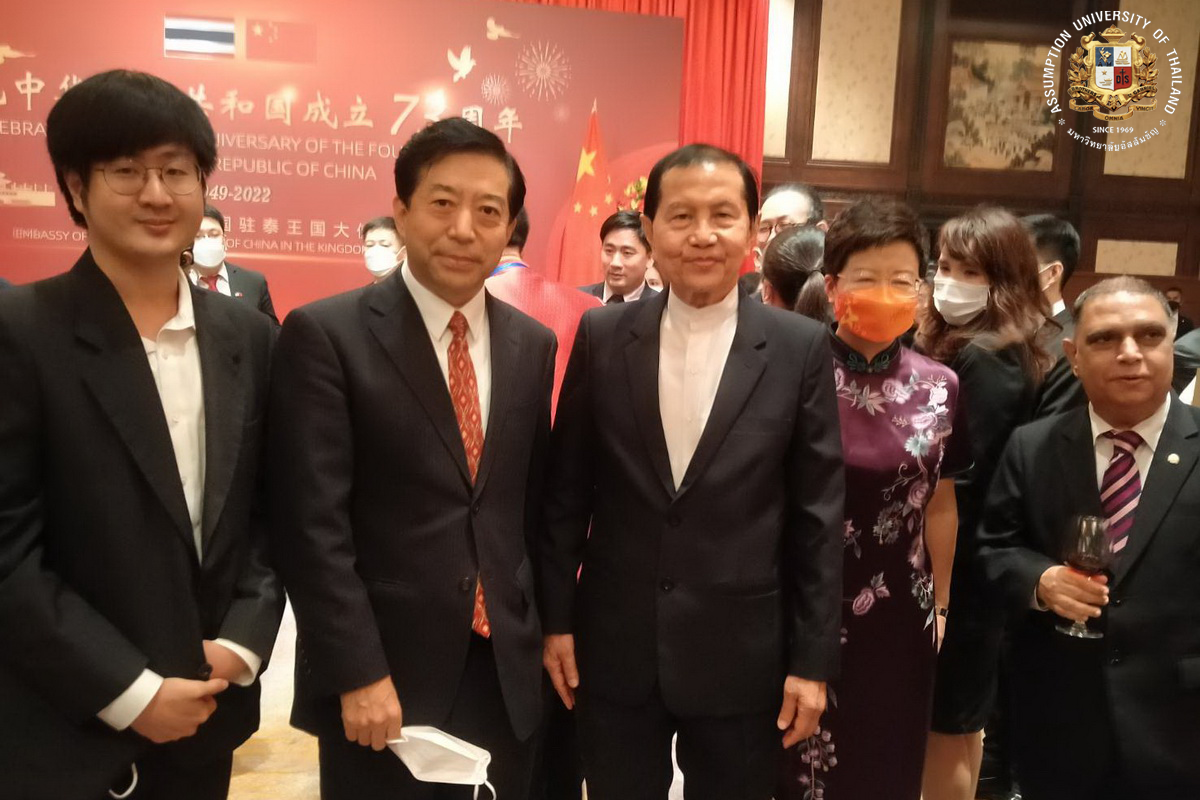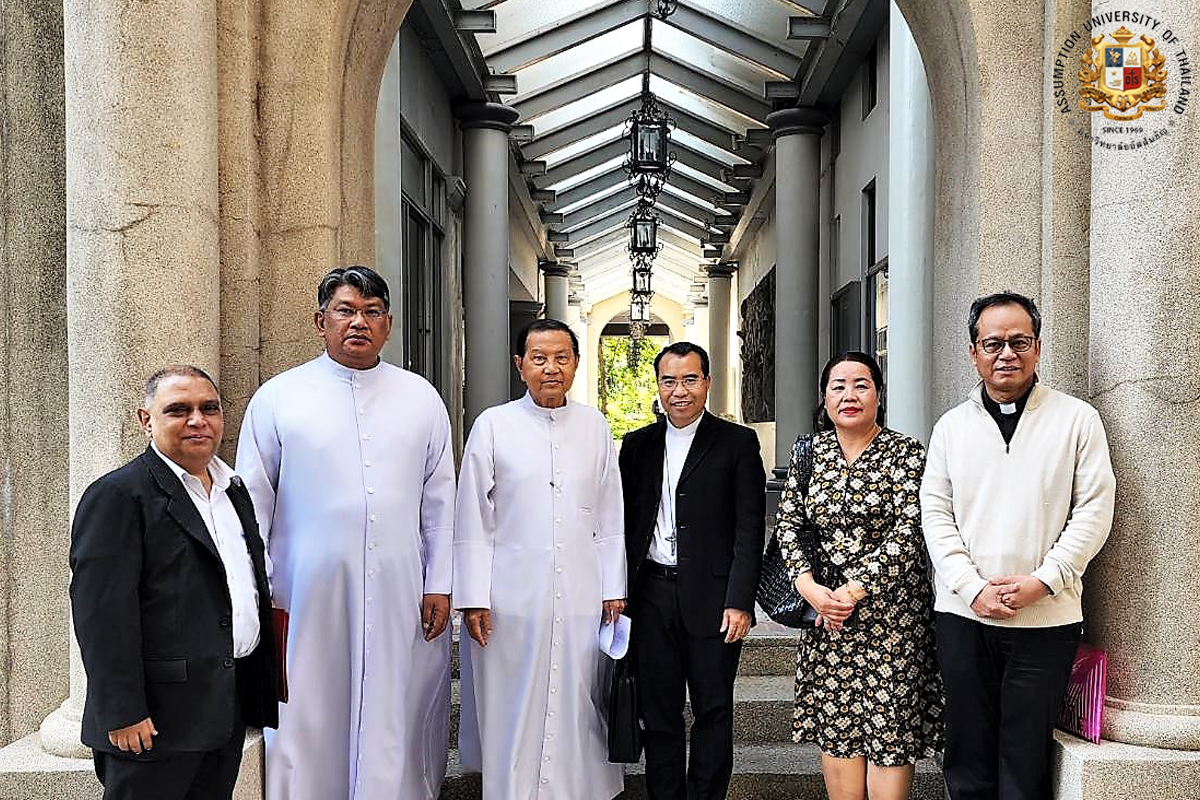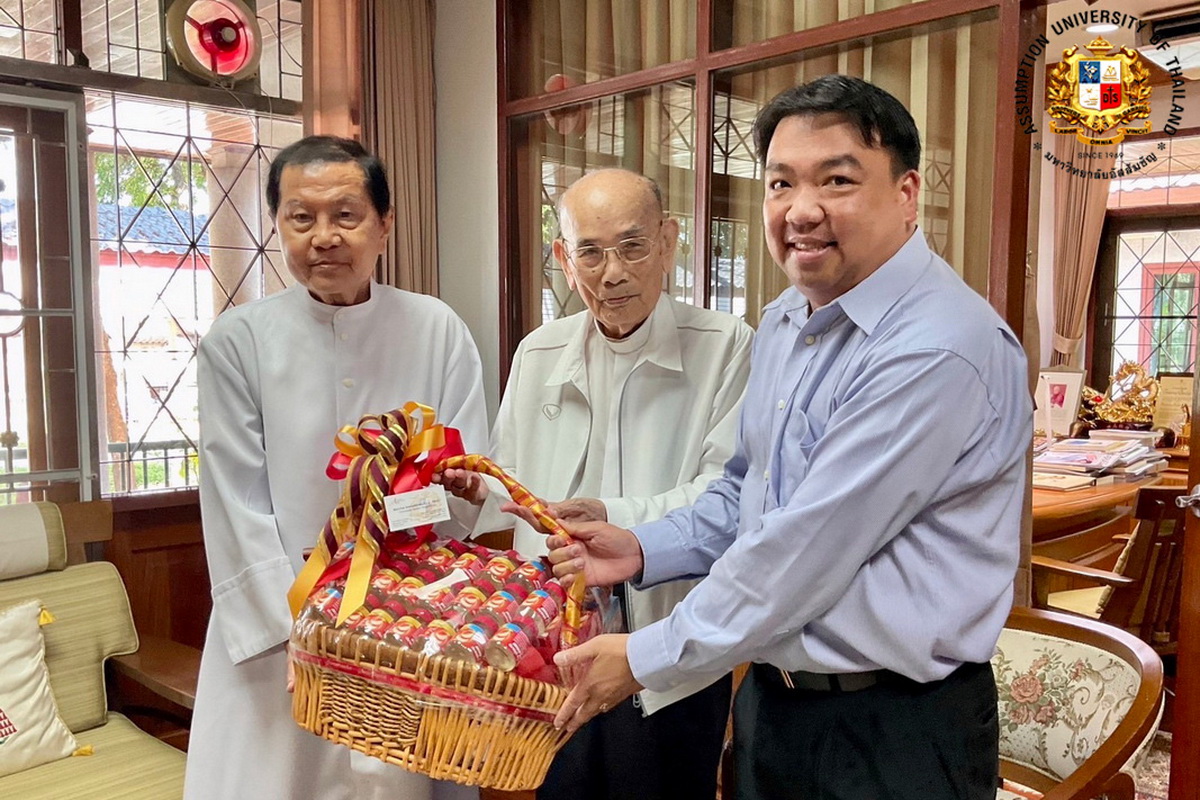WRITER: BENJAPORN ANUNWANITCHA
EDITED: THEODORE MARIA SCHOOL OF ARTS
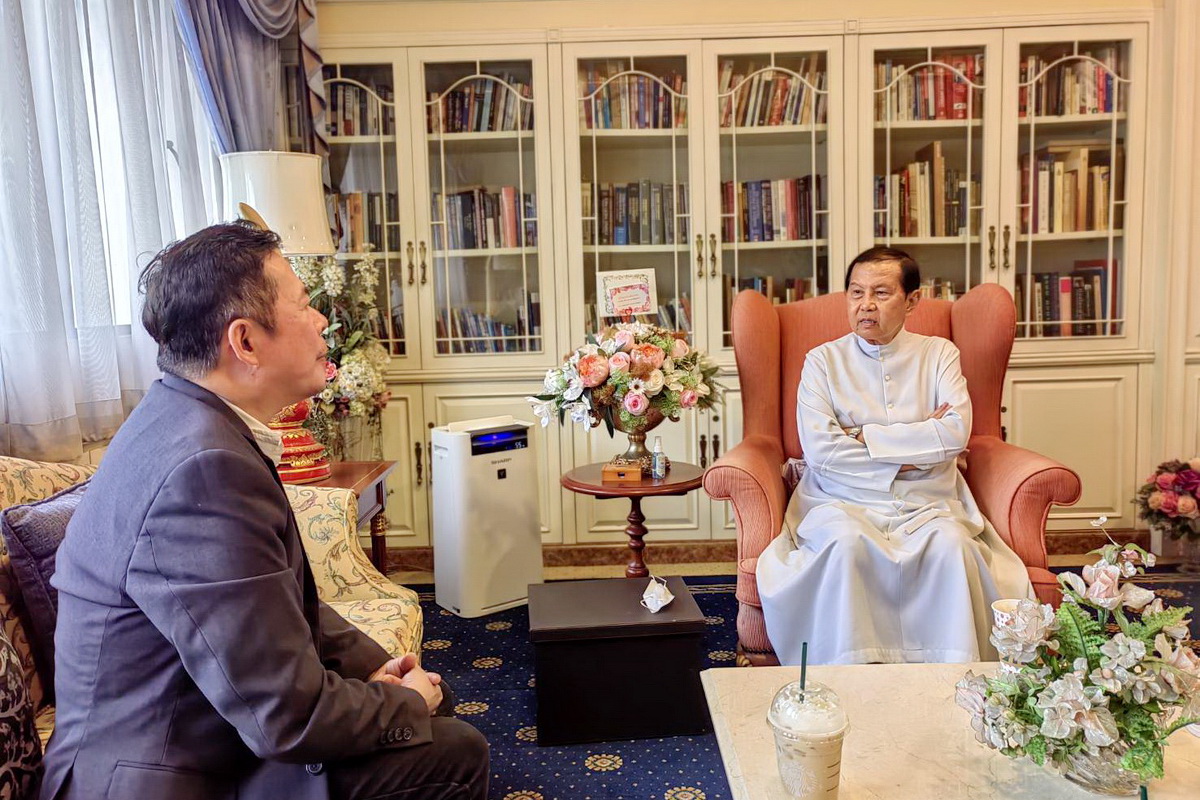 On 21 November 2022, Dr. Phairat Boonsuwan, Assistant Dean & Lecturer: Graduate School of Business, MBA program, Siam University, and his advisor, Dr. Bing Zhu, Full-time lecturer, Department of Marketing, Martin de Tours School of Management and Economics, Assumption University of Thailand (AU), met the AU President, Rev. Bro. Dr. Bancha Saenghiran to express his gratitude and receive his blessings on the occasion of Dr. Phairat’s graduation with a Ph.D. (Business Administration) from the Martin De Tours School of Management and Economics (MSME).
On 21 November 2022, Dr. Phairat Boonsuwan, Assistant Dean & Lecturer: Graduate School of Business, MBA program, Siam University, and his advisor, Dr. Bing Zhu, Full-time lecturer, Department of Marketing, Martin de Tours School of Management and Economics, Assumption University of Thailand (AU), met the AU President, Rev. Bro. Dr. Bancha Saenghiran to express his gratitude and receive his blessings on the occasion of Dr. Phairat’s graduation with a Ph.D. (Business Administration) from the Martin De Tours School of Management and Economics (MSME).
The Commencement Exercises of Dr. Phairat Boonsuwan, of Class L, will be held on Saturday, January 21, 2023, at the Bangkok International Trade and Exhibition Centre (BITEC), Bang Na.
For more information about the Commencement Exercises of Class L, Please 

Dr. Phairat Boonsuwan
Working Experience:
- 2014- present: Assistance Dean & Lecturer: Graduate School of Business, MBA program, Siam university
- 2008-2011: Amatanakorn Industrial Estate Branch manager, Bangkok Bank
- 2000-2008: International Banking management at Bangkok Bank (Hong Kong Branch., Shanghai Branch and Taipei Branch)
Educational Background
- 2016-2022: Ph.D. (Business Administration). Martin De Tours School of Management and Economics (MSME), Assumption University, Thailand
- 2020: Master of Applied Sciences. Lucerne University of Applied Sciences and Arts, Lucerne, Switzerland
- 2011-2013: Master of Business Administration. Sasin Graduate Institute of Business Administration, Chulalongkorn University & Kellogg School of Management, Northwestern Univ., Illinois, USA.
- 1990-1992: M.S. (CIS)-Computer Information System. Assumption University, Thailand
- 1983-1986: BA. (Accounting). Ramkhamhaeng University
Journal Articles
- Boonsuwan, P. & Siriwichai, C. (2022). The determinants of Innovative Knowledge Transfer on driving force Innovation performance and Global innovation. MNCs Automobile in Thailand. Rajapark Journal, 17(50) January-February 2023. (TCI1).
Abstract
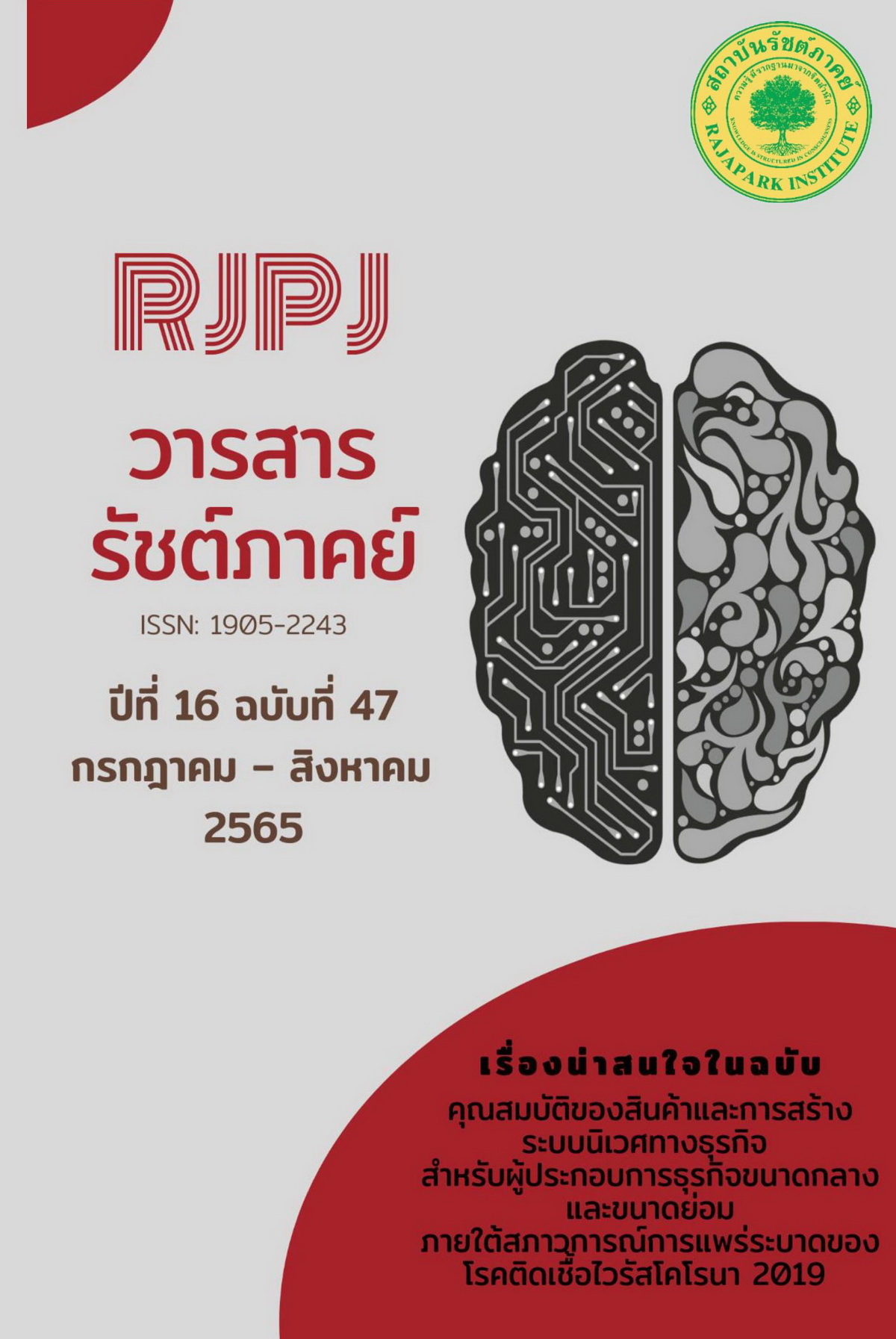 Innovative knowledge transfer has become an integral part of organizations’ business strategies, along with aiding organizations to grow and innovate in the market and gain competitive advantage. This paper aimed to concentrate on the role of innovative knowledge transfer in driving the knowledge quality and innovation capability of an organization. Furthermore, the study considers the complexity associated with the organization of multinational corporations (MNCs).
Innovative knowledge transfer has become an integral part of organizations’ business strategies, along with aiding organizations to grow and innovate in the market and gain competitive advantage. This paper aimed to concentrate on the role of innovative knowledge transfer in driving the knowledge quality and innovation capability of an organization. Furthermore, the study considers the complexity associated with the organization of multinational corporations (MNCs).
However, prior studies on a comprehensive framework to present a comprehensive framework revealed innovative knowledge factors such as innovative knowledge, new products, new processing, commercialization, and management that can influence the choices of innovative knowledge transfer dimensions such as codification, teachability, complexity, personalization knowledge transfer, and innovative capacity.
These studies aimed to explore how innovative knowledge transfer in MNC’s in Thailand is boosting competitiveness and contributing to the effectiveness of public research and are increasingly recognized by MNCs innovation with numerous initiatives aimed at promoting collaboration between research institutions and businesses by promoting and facilitating innovative knowledge transfer, and many others are planning to intensify their efforts in this direction.
- Boonsuwan, P. & Zhu, B. (2023). The Role of Intrapreneurship and Environmental Collaboration in Fostering Green Innovation Adoption in the Hotel Industry in Bangkok. Accepted by Journal of Thai Hospitality and Tourism. Jan- Jun Issue (TCI1).
Abstract
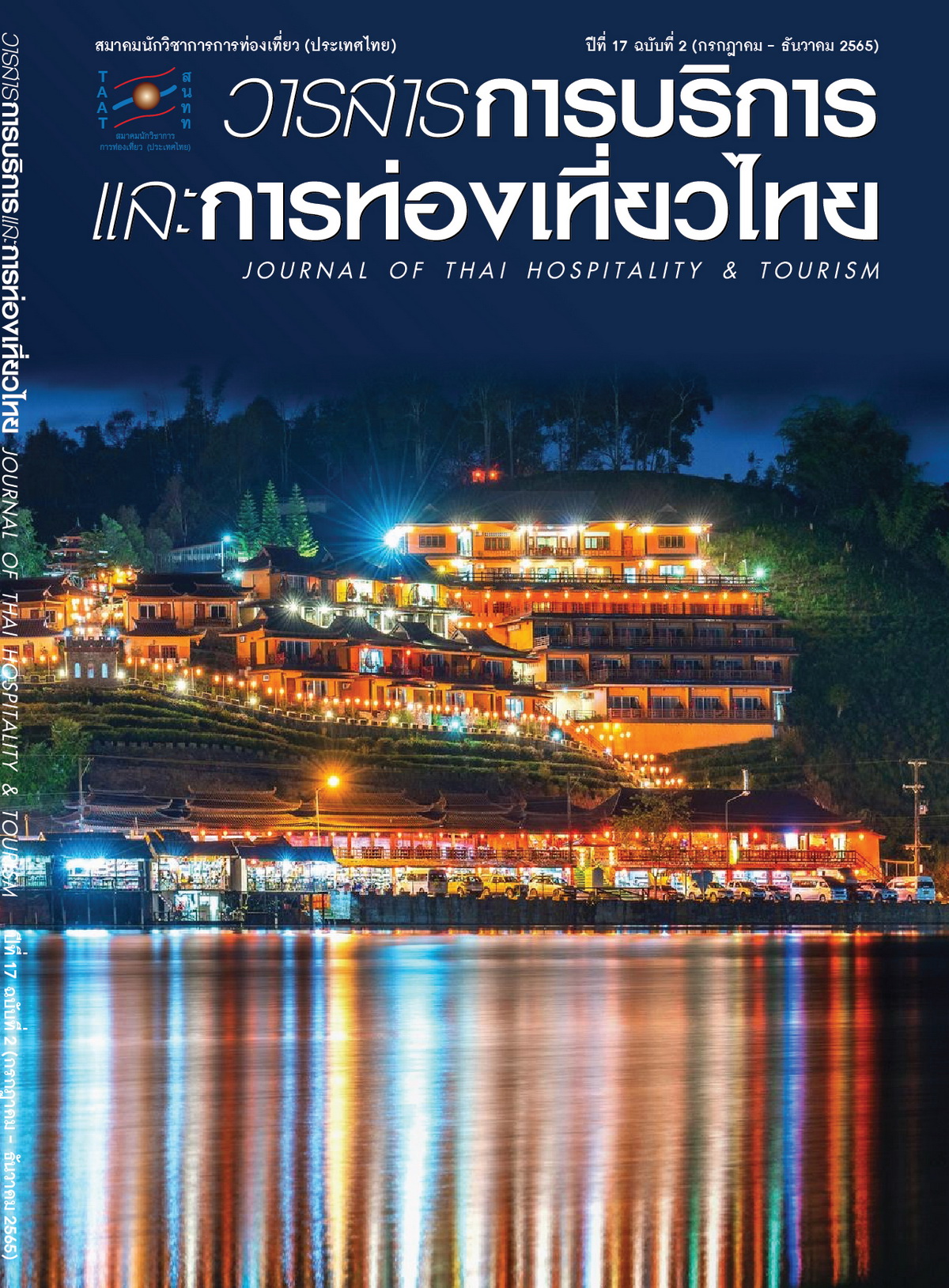 The primary aim of the study is to understand the roles of intrapreneurship and environmental collaboration in fostering green innovation adoption in the hotel industry in Bangkok through semi-structured interviews. Fifteen interviews were conducted with a group of people including five academic persons from hotel and tourist management faculty in university and college and ten persons from 275 hotels in Bangkok are (THA: Thai hotel association, 2020).
The primary aim of the study is to understand the roles of intrapreneurship and environmental collaboration in fostering green innovation adoption in the hotel industry in Bangkok through semi-structured interviews. Fifteen interviews were conducted with a group of people including five academic persons from hotel and tourist management faculty in university and college and ten persons from 275 hotels in Bangkok are (THA: Thai hotel association, 2020).
The findings firstly indicated that intrapreneurship is a key driver to trigger the adoption of green innovation through various aspects such as a creation of new business strategy and application of new technologies in product design, service process and communications. Also, a collaboration with suppliers and customers enhances hotels' adoption of green innovation to cope with environmental issues from different perspectives. The results of this study provided updating empirical evidence to enrich the existing literature. Consequently, recommendations are provided from provided from practical perspective.
- Boonsuwan, P. & Zhu, B. (2023). A Conceptual Model of Intrapreneurship, Sustainable Collaboration and Sustainable Human Capital Triggering Green Innovation Adoption in the Hotel Industry in Thailand. Accepted by Journal of Thai Hospitality and Tourism for publishing in July-December Issue (TCI1).
Abstract
 This study proposed a conceptual model to address the role of intrapreneurship green innovation adoption from hotel industry perspective, in which the diversified definitions, and determinants are integrated in order to discuss the new possibility of understanding sustainability and innovation at organizational level as Sustainable Collaboration and Sustainable Human Capital.
This study proposed a conceptual model to address the role of intrapreneurship green innovation adoption from hotel industry perspective, in which the diversified definitions, and determinants are integrated in order to discuss the new possibility of understanding sustainability and innovation at organizational level as Sustainable Collaboration and Sustainable Human Capital.
More importantly, we proposed on the Intrapreneurship role as internal initiative of a firm-specific capabilities are the main forces promoting the implementation of sustainability thereby actualizing green innovation in hotel industry in Thailand.
- Huber S, Simasathiansophon, N., Onputtha, S., & Boonsuwan, P. (2019). Status Reoprt on Sino-Thai Relationships in Business and Economics Today, RMUTT. Global Business and Economics Review, 29 December 2020. (TCI1).
Abstract
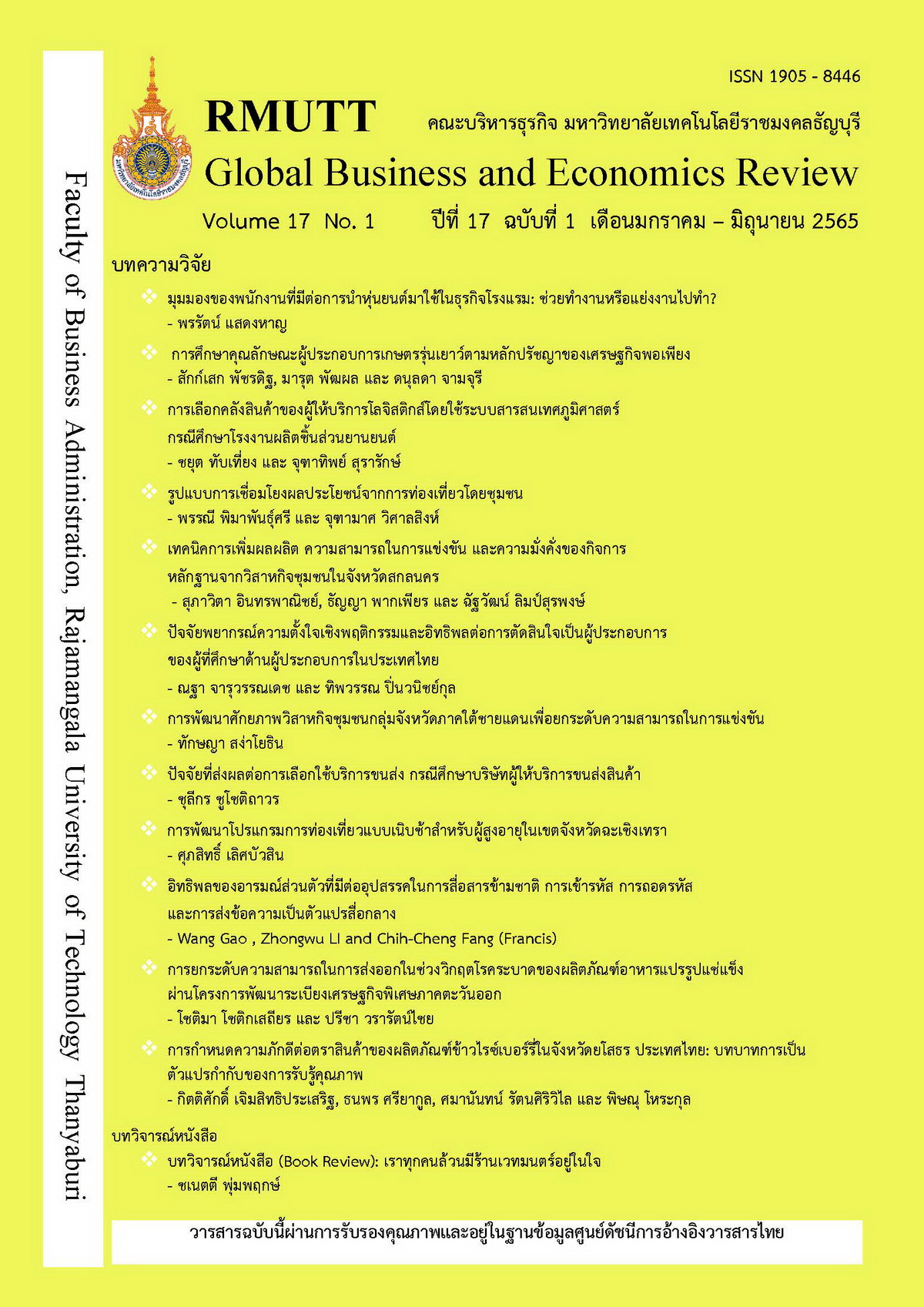 Sino-Thai relationships emerge from a century-long joint history with waves of Chinese immigrations into Thailand. Today, China constitutes Thailand’s most important trading partner in both import and export while also dominating Thailand’s incoming tourism.
Sino-Thai relationships emerge from a century-long joint history with waves of Chinese immigrations into Thailand. Today, China constitutes Thailand’s most important trading partner in both import and export while also dominating Thailand’s incoming tourism.
Through literature research, expert interviews and insights provided a brief snapshot on several layers of today’s Sino-Thai relationships was complied with an outlook on the need and specific aspects for future research on this topic.
After reading, the readers will obtain the overall picture of Sino-Thai relationships as well as analyse and compare strength and weakness in order to consider each countries’ competitive advantages and viewing the guidelines for each countries’ further economic development.
